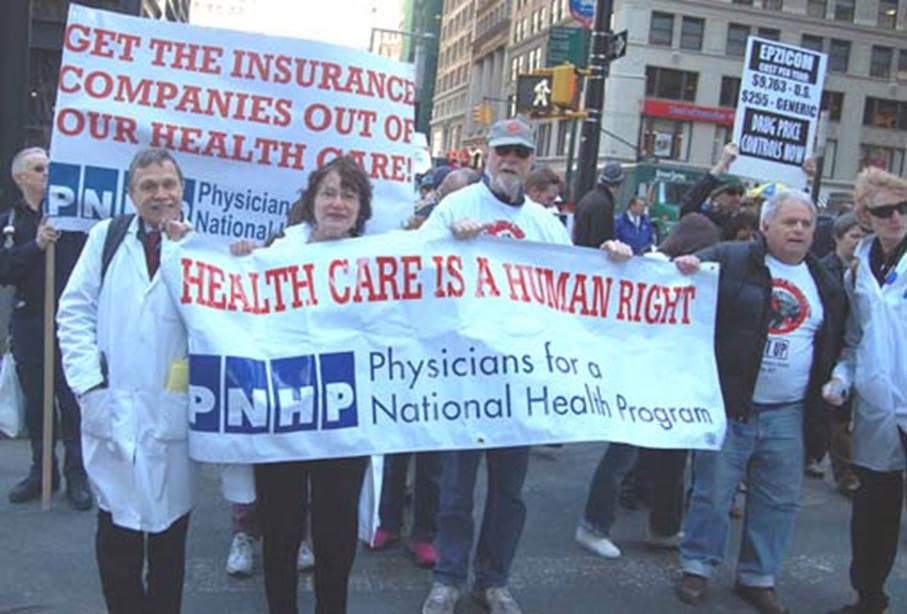
Talk about reforming federal entitlements like Medicare and Medicaid is the proverbial “third rail” in American politics. It can lead to the suicide of a politician’s career. Much more popular are the promises of politicians that Uncle Sam will always be there to take care of our health care needs
Problems with Government-Run Health Care
By Dr Mark W. Hendrickson
PA

Last week, I spoke with a lifelong friend. He has lived in western Canada for almost 50 years, and he was in Phoenix staying at the home of another lifelong friend. Rick flew to Phoenix to arrange for knee-replacement surgery. This was interesting from the perspective that several decades ago, he had spoken enthusiastically about Canada’s government-run “free health care” system. (Note: Of course, the health care system isn’t free. It is financed via taxation. But the out-of-pocket expense for any treatment—what we economists call “the marginal cost”—is essentially zero, i.e., free.)
So, if Canada provides surgery for free, why would Rick fly all the way to Phoenix where, as he had been told earlier via telephone, he would have to pay $25,000 for the operation? The answer is obvious to anyone who understands Economics 101: If a price is held below the market-clearing price where supply meets demand, there will be an excess of demand over supply—in plain English, a shortage.
It turns out that Rick had been trying unsuccessfully for a year to schedule knee-replacement surgery in Canada. He also told me that once he succeeded in scheduling the procedure, there would still be a three-year wait for the actual operation. Due to the pain and restricted mobility caused by his worn-out knee, Rick would happily pay $25,000 next month instead of waiting to get it done for free more than three years down the road.
This illustrates a fundamental problem with government-run health care: The price is great, but what good is a low price if what you need is not available within a tolerable time frame? This is what happens time after time when political considerations eclipse or ignore basic economic principles. Citizens are seduced by the appeal of getting something they need for free or for a negligible cost. Then, politicians pose as saviors and Santa Claus and give the people “free health care.” In so doing, however, the government disrupts the natural market for the product. Then, the promise that seemed almost too good to be true—in this case, free health care—is shown to be an empty promise as many supposed beneficiaries suffer from the resulting shortage.
The timing of Rick’s visit was interesting, because just as his individual experience was exposing a major problem of government-run health care in Canada, there were media reports of major problems with the government-run health care system in the United Kingdom. The Wall Street Journal, for example, bluntly reported that “the state-funded service is falling apart.” The average wait time for an ambulance is 90 minutes. “Hospitals are so full they are turning patients away. A record 7.1 million people in England—more than one in 10 people—are stuck on waiting lists for nonemergency hospital treatment like hip replacements.” Further, “Delays in treating people are causing the premature deaths of 300 to 500 people a week, according to estimates from the Royal College of Emergency Medicine.” Individual horror stories abound.
The UK government has tried to keep the costs of running the health-care system under control. Inevitably, that has led to rationing—things like reducing the number of hospital beds. It has also led to keeping a cap on salaries of health care professionals. Average pay for the employees of the government-run system has fallen by as much as one-third (adjusted for inflation) since 2008, resulting in a strike by frustrated paramedics and nurses earlier this month. Against that backdrop, it isn’t surprising that seven in ten Brits now describe the National Health Service as “bad.” Apparently, “free” isn’t all it’s cracked up to be.
We can be thankful that we don’t have socialized (i.e., government-run) health care in the United States—well, at least not yet. For over 50 years, the federal government has been expanding its involvement in the health care industry. Medicare and Medicaid have been problematical. While many Americans are grateful that those programs have kept out-of-pocket expenses down, there has been a downside, too. The hundreds of billions of dollars that Uncle Sam has channeled into health care has pushed health care costs higher at a far faster rate than overall inflation. Also, the federal health care programs—when combined with Social Security—are crowding out other spending and virtually guaranteeing annual budget deficits for as far as the eye can see.
As I wrote in this space a decade ago , Uncle Sam’s expenditures on health care have been rising faster than the revenue coming into the US Treasury. That cannot be sustained indefinitely. There will need to be a reckoning, an adjustment. However, talk about reforming federal entitlements like Medicare and Medicaid is the proverbial “third rail” in American politics. It can lead to the suicide of a politician’s career. Much more popular are the promises of politicians that Uncle Sam will always be there to take care of our health care needs. Many pols propose the establishment of a more comprehensive government-run health care system similar to ones in Canada and the UK. The siren song of “free” and “let the government take care of you” may prove irresistible to a majority of American voters. All I can say is that we ignore the lessons of Canadian and UK health care at our own peril.
(Dr Mark W. Hendrickson is a retired adjunct faculty member, economist, and fellow for economic and social policy with the Institute for Faith and Freedom at Grove City College )

